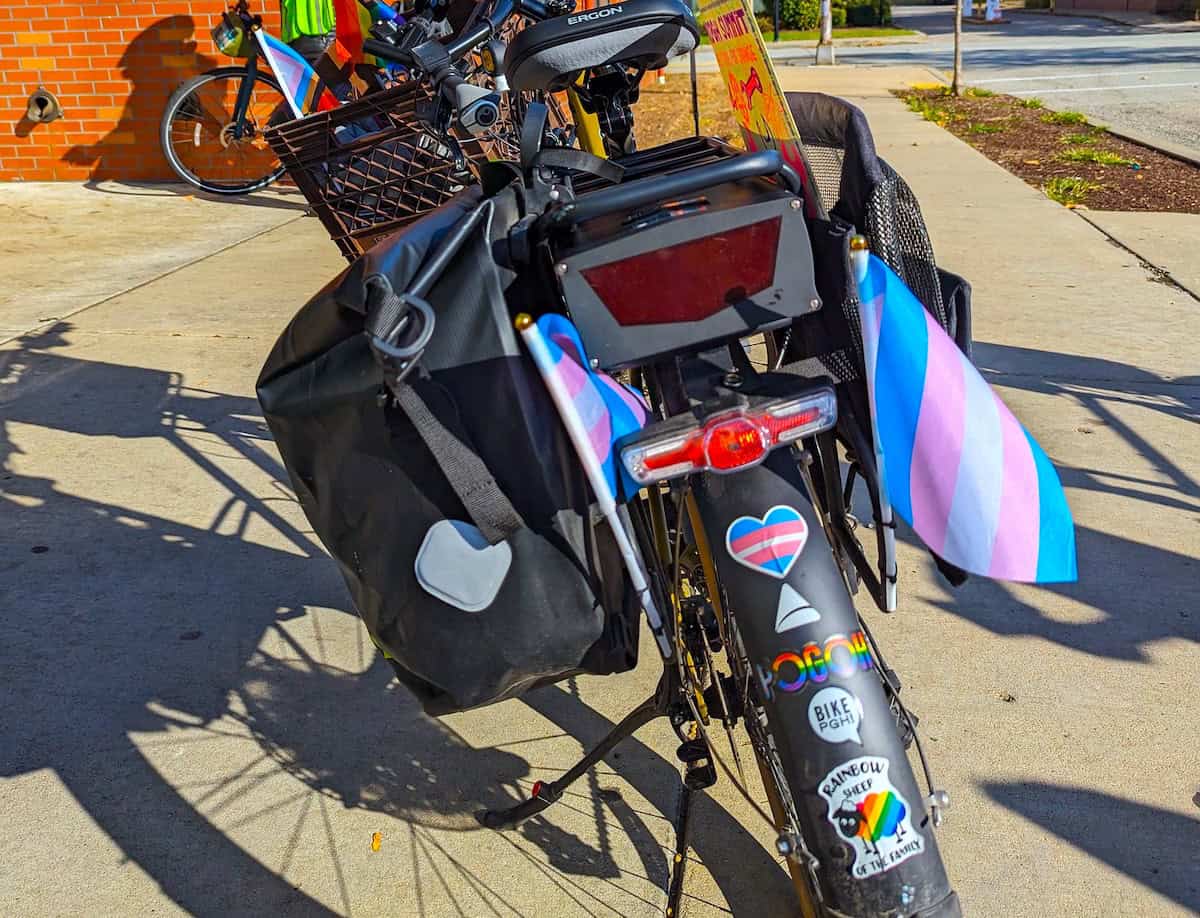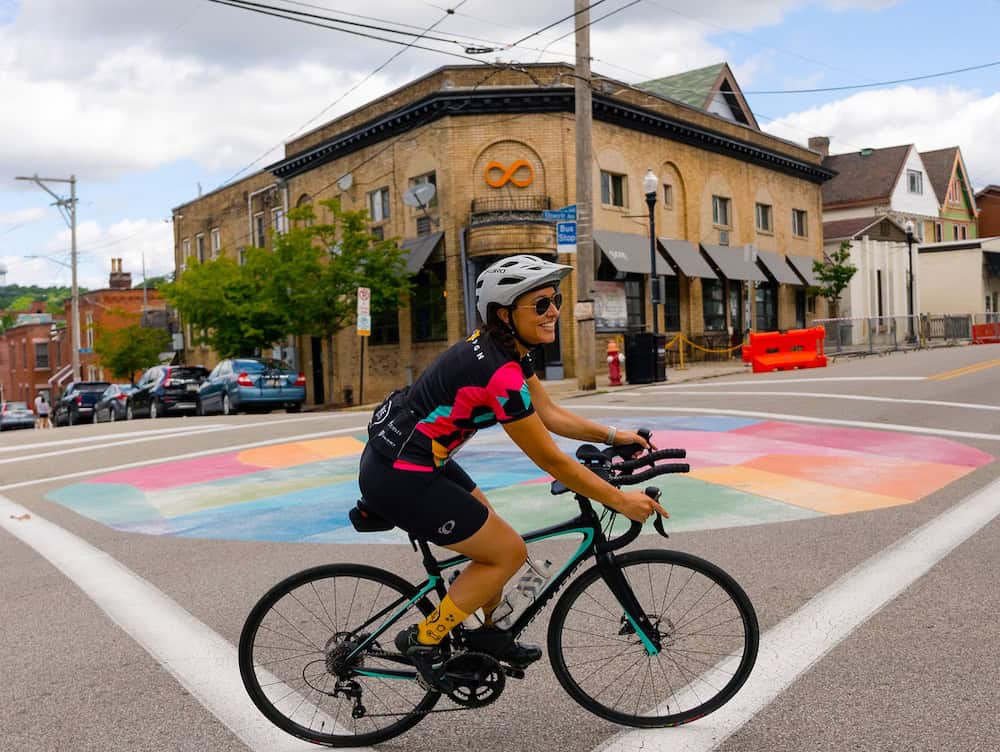
Everyone deserves the right to freely move through Pittsburgh
How people move through the world (literally and figuratively), matters. Pride Month gets us thinking about the LGBTQ+ community’s right to live and move safely and freely. This goes hand-in-hand with the fight for Mobility Justice and equitable access to safe, affordable, and inclusive transportation for all, especially for those who have been historically marginalized.
Beyond our transportation system’s ongoing inequities, including infrastructure problems that disproportionately affect marginalized communities, there are additional factors that prevent folks from access to bikeable and walkable communities. Verbal harassment, threats of violence, and efforts of physical harm are causing folks to feel unsafe in places they should feel the safest, aka, their own neighborhoods.
Every person deserves the right to move through their city without fear. That means our infrastructure needs to protect all bodies, identities, and modes of movement.
The LGBTQ+ community, particularly trans and gender nonconforming people, face disproportionate barriers in public spaces. Whether it’s street harassment or systemic housing displacement that makes commutes longer and more dangerous, hostile transportation networks can deeply affect LGBTQ+ and genderqueer folks.
The number of reported incidents of harassment and hate crimes towards LGBTQ+ people is striking. Since May 2024, GLAAD’s ALERT Desk tracked 900+ anti-LGBTQ incidents nationwide– the equivalent of 2.5 incidents every day. It’s no surprise to see such shocking numbers towards LGBTQ+ individuals when our current presidential administration is spending so much time, effort, and money on the erasure of trans and queer folks. Four executive orders targeting and discriminating against transgender folks have been passed, LGBTQ-related public resources have been censored or removed, transgender leaders are being removed from national monuments, over $215 Million has been spent on anti-trans political ads.
Our Streets Are Inherently Political
Pride Month itself started as a protest— a demand for the right to exist and resist in public. In this same way, streets, sidewalks, parks, and bike lanes are not neutral spaces. They are public arenas where visibility, safety, and power are negotiated daily. It’s important to make it clear that queer and trans people belong here.
That’s why we advocate for streets that are accessible and safe. Urban design should celebrate diversity, not erase it. Street murals and crosswalks painted rainbow are great, but lasting justice comes from policies and infrastructure that prioritize those who are most vulnerable, from LGBTQ+ folks to racially marginalized communities.

Intersectionality in Motion
Mobility justice, like queer liberation, is intersectional. You can’t talk about biking or transit access without talking about race, class, gender identity, and disability. Queer people of color and low-income LGBTQ+ individuals often face compounding barriers: unsafe streets, over-policing, and limited access to services.
This intersectionality contributes to some individuals receiving higher levels of targeted harassment and violence. Black Trans women for instance, are not only vulnerable to anti-LGBTQ+ harassment, but are susceptible to transphobic, sexist, and racist oppression.
Only by accepting and understanding the connection between human rights and mobility justice, can we work towards a safer, more inclusive Pittsburgh where all individuals have access to their streets, sidewalks, parks, and trails. A truly bikeable, walkable city is one that works for everyone— not just the most privileged.
Safety and acceptance also comes from seeing representation that aligns with our own intersecting identities. Beyond pride month, we need to listen to and uplift LGBTQ+ communities, welcome marginalized folks into transportation spaces and events, and fund inclusive infrastructure, because our streets need to be designed for every body and every journey.
WMNBikePGH is breaking barriers
You might’ve heard of our Women & Non-Binary program, WMNBikePGH. Some years ago we created this program to create a space where marginalized gender identities feel safe, seen, and heard in a cycling community. Check out our events and group rides here, including our June 17th Pride Ride.